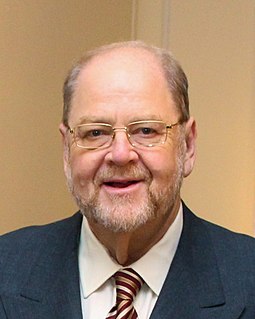A Quote by Francis Collins
I became an atheist because, as a graduate student studying quantum physics, life seemed to be reducible to second-order differential equations. Mathematics, chemistry and physics had it all. And I didn't see any need to go beyond that.
Related Quotes
I studied physics at Princeton when I was a college student, and my initial intention was to major in it but to also be a writer. What I discovered, because it was a very high-powered physics program with its own fusion reactor, was that to keep up with my fellow students in that program I would need to dedicate myself to math and physics all the time and let writing go. And I couldn't let writing go, so I let physics go and became a science fan and a storyteller.
It seems that every practitioner of physics has had to wonder at some point why mathematics and physics have come to be so closely entwined. Opinions vary on the answer. ..Bertrand Russell acknowledged..'Physics is mathematical not because we know so much about the physical world, but because we know so little.' ..Mathematics may be indispensable to physics, but it obviously does not constitute physics.
Did chemistry theorems exist? No: therefore you had to go further, not be satisfied with the quia, go back to the origins, to mathematics and physics. The origins of chemistry were ignoble, or at least equivocal: the dens of the alchemists, their abominable hodgepodge of ideas and language, their confessed interest in gold, their Levantine swindles typical of charlatans and magicians; instead, at the origin of physics lay the strenuous clarity of the West-Archimedes and Euclid.
Quantum physics is the physics of possibilities. And not just material possibilities, but also possibilities of meaning, of feeling, and of intuiting. You choose everything you experience from these possibilities, so quantum physics is a way of understanding your life as one long series of choices that are in themselves the ultimate acts of creativity.
What appear to be the most valuable aspects of the theoretical physics we have are the mathematical descriptions which enable us to predict events. These equations are, we would argue, the only realities we can be certain of in physics; any other ways we have of thinking about the situation are visual aids or mnemonics which make it easier for beings with our sort of macroscopic experience to use and remember the equations.




































